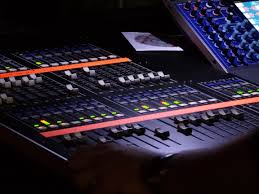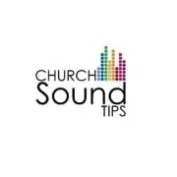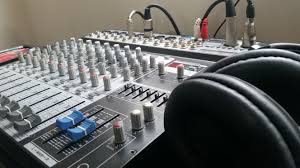With the growing popularity of digital mixers, I thought it would be worth doing a post on the differences between digital and analogue mixers as the differences can be a bit confusing.
A mixer is a very important component when you are setting up a sound system. The quality of the sound produced is heavily dependent on the type and quality of the mixer you use. This is because the main function of a mixer is to harmonize all the signals from all the sources and send them to other destinations.
There are different types and makes of mixers, each having different capabilities. The two most common types of mixers are the analog and digital mixers. These two are similar and also different in many ways.
Overview
Analog and digital mixers have particular differences in their prices, quality of sound they produce and even the design. Here are some of the differences between them;
• Price
In general, an analogue mixer is less expensive than a digital sound desk. This is because their compatibility with a wide range of additional sound systems. Analog consoles are also less expensive to purchase than digital soundboards. Digital soundboards, on the other hand, are more expensive to purchase than analogue mixers. This is due to the fact that the bulk of the analogue systems have been written off and replaced with more sophisticated ones.
• Flexibility
Because you can pre-program and recall settings whenever you need them, a digital console is extremely versatile. This is a feature that is not available on analogue mixing desks. It improves the efficiency of digital mixing consoles, particularly in situations where different sounds are required for different scenes. It is also useful for correcting mistakes.
Because of their functionality, expensive outboard gear is probably less necessary as well. Analog soundboards, by comparison, lack this feature and, as a result, require more attention when operating. Check out my post about comparing analog snakes and digital cable systems.
• Ease of operation
When compared to digital mixers, analogue desks are more user-friendly. This is due to the similarity in the layout of analogue mixers. Because the console layout tends to follow signal flow, if you become proficient with one of the analogue mixers, you will be able to operate the majority of other analogue desks with ease. Digital desks, by comparison, come in a wide variety of designs. However, by learning how to use one mixing console, you cannot necessarily expect to understand the capabilities of all of all of them.
You might want to check out my post on the most popular mixers in churches at the moment. I polled several hundred members of a church audio technician’s Facebook group, and these are the results – read more here.
• Noise
In comparison to analogue mixers, digital consoles are more resistant to environmental noise. Even at greater distances, digital transmission is not susceptible to noise. An analogue console, on the other hand, lacks the digital transmission feature and is thus very susceptible to noise. Analog mixers can be noisy, especially in larger spaces, but a good quality desk will have a low noise floor.
Check out my massive post – 101 Ideas for Church Sound Systems
Analog audio mixers
Advantages
• They are cheap to purchase.
• When choosing between an analogue and a digital mixer, analogue is the more user-friendly option. Once you’ve mastered one analogue mixer, you’ll be able to work any other board with ease. Because of their simplicity, they are also ideal for beginners. It is simple to resolve any issues with the audio signal flow. The layout view they offer provides serves to help people better comprehend the audio signal flow.
in-depth review of the Yamaha MG20XU 20 channel mixer
Disadvantages
Some of the disadvantages of analog mixers include the following;
• Analog soundboards are large and heavy. This makes them difficult to transport from one location to another.
• Overall costs can be high in some cases, especially if you want to customise it and add external effects units. Collecting the best mixer parts may end up costing more than purchasing a new digital mixer.
• There are no features that allow you to pre-program or recall previous sounds. This makes using analogue boards tiresome because you have to create new sounds every time.

Digital mixers
Advantages
• It is possible and simple to pre-program settings and then recall them as needed. This makes them simple and enjoyable to use, particularly at large gatherings and events. Using the preprogrammed settings, you can easily alter the atmosphere of the event.
• They can support more external sound devices.
• they produce better sound because they can reduce background and environmental noise In the transmission of audio signals, they use digital transmission, which is resistant to noise.
• They can perform more functions because each function serves a different purpose. This makes it possible to pack more functions into a smaller space with ease.
• Digital mixers are smaller and less bulky than analogue mixers. This facilitates their movement from one location to the next.
• Easier computer interfacing
You should check out my other related post budget sound consoles for churches
Disadvantages
• One of the obvious disadvantages of these mixers is their high cost of purchase. There are a variety of other reasons for this, but among them is the increased versatility and ability to perform additional functions.
• A digital mixing desk may be difficult to use for inexperienced users. Learning how to operate one does not imply that you will be able to operate another digital mixer with ease. It may be difficult to put together different parts of the mixer to create a customised setup. It may necessitate a high level of skill, which may be prohibitively expensive.
I have put together a list of my top gear for church audio – check it out here.
Conclusion
The most important aspect of sound systems is the mixer. It is critical to understand that the type of mixer you use has a significant impact on the sound quality produced. Each of the soundboards has unique capabilities for a variety of applications. Each mixer has a number of drawbacks in addition to its advantages.
Today, both analogue and digital consoles are popular. The decision between a digital mixer and an analogue mixer is influenced by the quality of sound desired, the efficiency required, and the price at which you are willing to purchase a mixer.


Leave a Reply